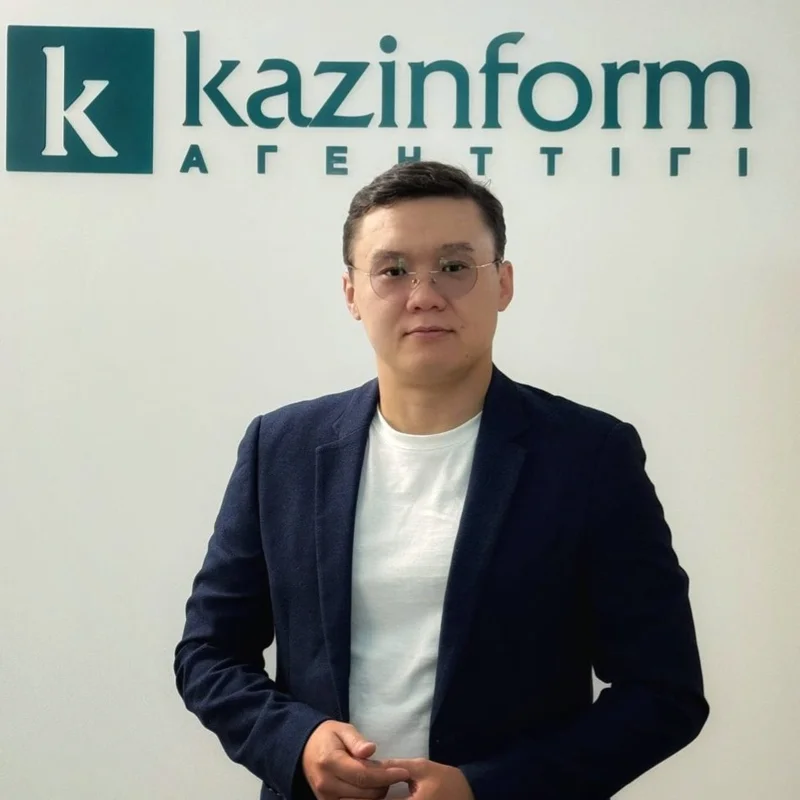Astana – Moscow: Kassym-Jomart Tokayev’s state visit to define bilateral agenda for decades ahead
On November 11–12, 2025, President of Kazakhstan Kassym-Jomart Tokayev will pay a state visit to the Russian Federation. The trip to Moscow marks another important stage in the relations between the two countries. The analytical overview by a Kazinform News Agency correspondent outlines the key principles underlying Kazakhstan–Russia cooperation.
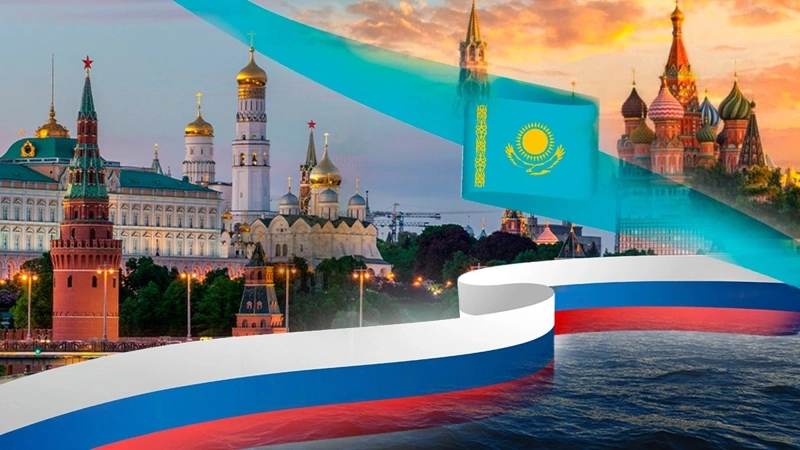
Engines of integration
The President’s visit to Moscow is a logical continuation of the long-established foundation of bilateral cooperation and is expected to give new impetus to economic and cultural-humanitarian partnership.
Kazakhstan was the first CIS country to sign with Russia the Treaty on Friendship, Cooperation and Mutual Assistance in May 1992.
In the mid-1990s, Kazakhstan and Russia laid the foundation of the Customs Union and the Eurasian Economic Community, and in 1998 signed the Declaration on Eternal Friendship and Alliance Oriented Toward the 21st Century. The two countries were also the first to reach mutual understanding and agreements on the development of Caspian Sea resources and rights to subsurface use.
In 2020, the Treaty on Good-Neighborliness and Alliance in the 21st Century was updated, reaffirming mutual respect for sovereignty and territorial integrity, and promoting peace, stability, and the development of trade, scientific, and humanitarian cooperation.
However, as the world changes rapidly, regional alliances gain special significance for sustainable development. For Kazakhstan and Russia, which share the world’s longest land border, the upcoming presidential meeting in Moscow is one of the key foreign policy events.
A state visit, in diplomatic protocol, represents the highest level of interstate relations, underscoring their special nature.
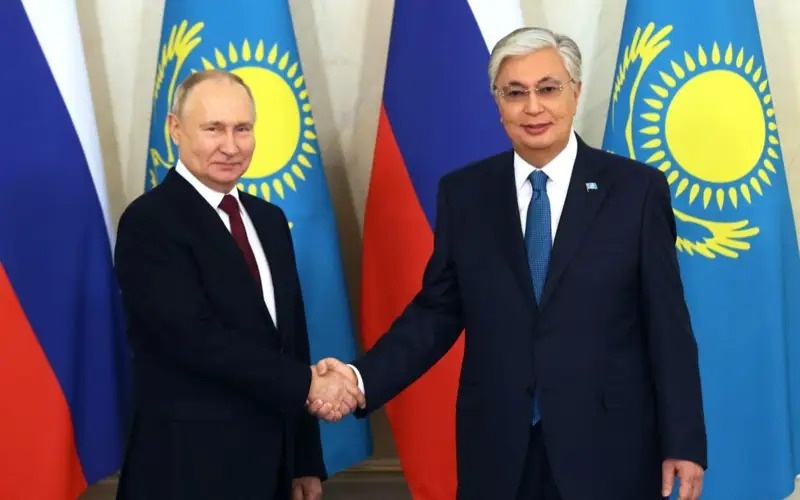
At the Russia–Central Asia Summit in Dushanbe in October, President Tokayev described the forthcoming state visit as a “landmark event” that could give new momentum to strategic partnership and allied relations. Russian President Vladimir Putin, in turn, emphasized that relations between the two countries are of a special nature — not only due to historical proximity, but also because Kazakhstan and Russia were the founders of Eurasian integration, building a space of trust and pragmatism across the post-Soviet region.
From resource exchange to industrialization
Kazakhstan–Russia relations are well illustrated by economic indicators. Currently, 75 joint projects worth about $33 billion are being implemented, including the launch of a KAMAZ casting plant in Kostanay, a Tatneft tire plant in Saran with an annual capacity of 3.5 million units, and fertilizer production facilities involving EuroChem and Uralchem.
Mining remains strategically important. Rosatom has obtained a major stake in the development of the Budenovskoye uranium deposit. Oil and gas projects “Kalamkas-Sea” and “Khazar” are expected to attract at least $6 billion in investments, demonstrating the long-term and mutually beneficial nature of cooperation.
The total volume of mutual investments exceeds $50 billion. Last year alone, Russian investments in Kazakhstan’s economy surpassed $4 billion — a record figure.
A significant role was played by production cooperation within the framework of the Eurasian Economic Union. In addition, amid an unstable geopolitical situation, Russian entrepreneurs actively sought new markets, and Kazakhstan became a strategically important destination for them. Alongside geographic proximity, our country has established itself as a center of economic attraction with a steadily developing macroeconomy. "An additional incentive for investors is the successful operation of joint enterprises” notes Assel Aben, Chief Expert of the Department for Economic Policy Analysis at the Kazakhstan Institute for Strategic Studies under the President of Kazakhstan (KazISS).
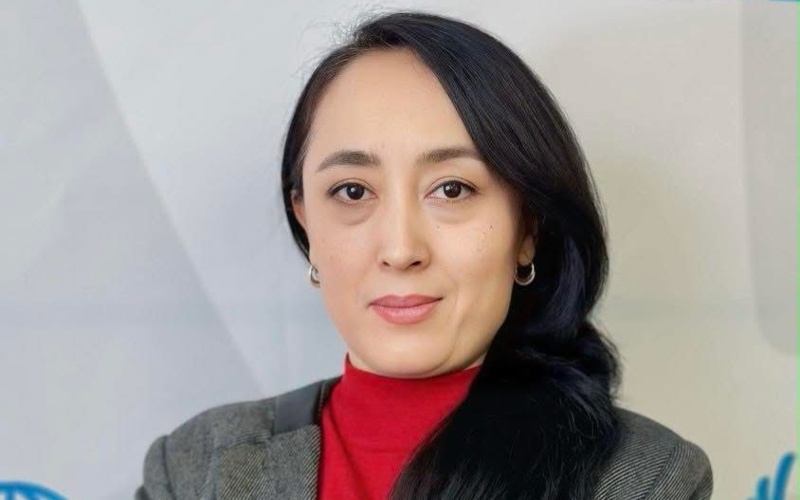
“Over 23,000 companies with Russian capital operate in Kazakhstan, making up about 38% of all foreign firms, but only 845 of them are in manufacturing,” said Aben.
Energy as the foundation of cooperation
Energy dominates joint ventures. The key project is Kazakhstan’s first nuclear power plant, being developed with Rosatom, which has already begun engineering work. The project, estimated at $14–15 billion, is scheduled for completion in 2035–2036, and will enhance Kazakhstan’s energy security and reduce its carbon footprint.
Since 2023, a Roadmap for Cooperation between Gazprom and Kazakhstan’s government has been in effect, alongside a 15-year Strategic Partnership Agreement. In October 2025, the transit of Russian gas to Uzbekistan through Kazakhstan began — up to 3 billion cubic meters annually — strengthening Kazakhstan’s role as a Central Asian energy hub.
In parallel, a gasification program is being implemented in the northern and eastern regions of Kazakhstan, with Russia acting as the main technical and investment partner.
About 80% of Kazakhstan’s oil exports transit through Russia via the Caspian Pipeline Consortium. Plans are underway to increase this volume from 7 to 10 million tons per year. Kazakhstan has also extended the Agreement on Russian Oil Transit to China until 2034, totaling over 100 million tons.
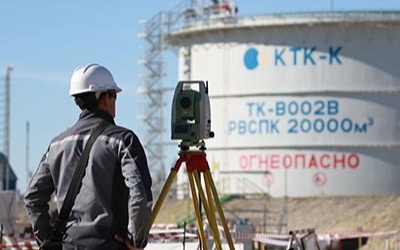
Special attention is given to ensuring the stable functioning of the fuel and energy complex and to the introduction of renewable energy sources, which fully corresponds to global trends toward decarbonization and the transition to a “green” economy.
Eurasian logistics hub
Infrastructure cooperation is also growing through the North–South Transport Corridor connecting Russia, Kazakhstan, and Iran to the Persian Gulf. Kazakhstan is actively participating in global initiatives, including the Belt and Road project, and is also developing the Trans-Caspian transport route, strengthening its role as a strategic land bridge between East and West.
At the end of September, the President of Kazakhstan launched the construction of the second line of the Dostyk–Mointy railway — the largest railway artery built in the past 30 years. Implementation of the project will increase the volume of transit freight transportation across the country almost fivefold. By carrying out this and other infrastructure initiatives, Kazakhstan is becoming a key link in Eurasian logistics and transit.
New corridors will also be added to the existing ones. For example, at the SCO summit held in early September in Tianjin, China, the prospects for establishing a Trans-Altai Dialogue were discussed — a new initiative bringing together Russia, Kazakhstan, China, and Mongolia.
Trade potential
Despite the expansion of transport and logistics ties, in the first eight months of this year trade turnover between Kazakhstan and Russia decreased by 5.7%, amounting to $17 billion. According to the Ministry of Trade and Integration of Kazakhstan, the main reason was a 15.4% decline in the volume of Kazakh exports to Russia.
The fall in exports was mainly due to reduced supplies of uranium (–41%, or –$435 million), copper ores (–$146 million), zinc (–$112 million), iron ores (–$96 million), and chromite ores (–$63 million). Altogether, these items reduced total exports by almost $850 million.
At the same time, there was an increase in the export of gold (+61%), hot-rolled steel (+12%), fertilizers (+130%), and perfumery (+390%). However, even such growth could not offset the overall decline in export volumes.
Imports from Russia remained almost unchanged (–0.6%). Deliveries of copper, wheat, and locomotives decreased, while imports of petroleum products (+91%), steel products, and textiles grew significantly.
From trade partner to technological ally
According to KazISS expert Assel Aben, the main issue lies not in the trade volume but in its structure. Kazakhstan must not only expand exports but also improve their quality to reduce the trade balance gap.
“One of the ways to achieve this is import localization. In industries with high dependence — such as pharmaceuticals, plastics, and auto parts — it is necessary to develop joint production and offset agreements under which Russian partners partially move production to Kazakhstan. This will help retain added value within the country and reduce import volumes,” the expert said.
President Kassym-Jomart Tokayev has set a clear goal: “To maintain the mutual trade benchmark at $30 billion.” The prerequisites for achieving this goal have already been established. According to experts, the results of the upcoming state visit may determine the economic agenda for decades ahead.
“For Russia, the Asia-Pacific region is becoming increasingly important. Kazakhstan lies on this route as one of the key transit states. That is the first aspect of Kazakhstan’s importance for Russia. The second is that under conditions of tension and sanctions pressure, the support of allies becomes especially significant for Russia,” said political analyst Eduard Poletaev.

Experts emphasize that under current conditions, priority should be given to developing joint projects in energy, transport, and high technology.
“It is important to note that the very logic of interaction is changing. Instead of the ‘buyer–supplier’ model, a new chain is emerging — ‘production partners.’ If such projects are accompanied by localization and the development of engineering competencies, they can create new industrial clusters and an export base in Kazakhstan. However, it is essential not to limit cooperation to assembly operations only — the country needs research and design centers, service hubs, and full-fledged technology transfer. In that case, joint projects will truly become instruments of industrialization,” emphasized Assel Aben.
Human capital and digital agenda
About 15% of joint projects between Kazakhstan and Russia fall within the financial and IT sectors, reflecting Kazakhstan’s transition to a digital economy and the development of a knowledge-based industry. In this context, human capital is becoming one of the key areas of bilateral cooperation.
Today, about 67,000 students from Kazakhstan study at Russian universities. Branches of leading Russian universities — MEPhI, Gubkin University of Oil and Gas, Mendeleev University of Chemical Technology, and recently MGIMO — are operating in Kazakhstan. In total, 60 Kazakh and 50 Russian universities implement over 1,800 joint agreements and educational programs.
Thanks to Russian investments, the establishment of joint enterprises, and active trade between the two countries, more than 22,000 jobs have been created in Kazakhstan. Employees undergo professional training and master modern technologies, contributing to the formation of a new generation of specialists for high-tech industries.
Dialogue of leaders: Continuity and strategic course
Issues of human capital development, investment attraction, and cooperation in transport, energy, and digital economy will be the main topics of the 21st Kazakhstan–Russia Interregional Cooperation Forum, which will take place in Oral (Uralsk) as part of President Kassym-Jomart Tokayev’s state visit to Russia.
Such forums have become a good tradition for the two neighboring countries, especially for border regions, which account for about 70% of total bilateral trade. Their key feature is the participation of the Presidents of Kazakhstan and Russia, which gives the forum high political status and ensures the practical focus of the discussed initiatives.
Over the past two years, Presidents Tokayev and Putin have repeatedly met in Moscow, Astana, Kazan, Dushanbe, and on the sidelines of international forums. In July of last year, they held talks during the SCO summit, confirming their intention to expand cooperation in transport and logistics, particularly along the North–South route, and agreed to prepare a Program of Interregional Cooperation for 2024–2028.
In November 2024, President Putin paid a state visit to Astana, during which the parties signed 20 intergovernmental agreements, including a Joint Statement on Strategic Partnership under Global Turbulence.
In October this year, during the CIS and “Russia–Central Asia” summits, Tokayev and Putin again held separate talks, discussing the implementation of the November agreements and the upcoming state visit of Kassym-Jomart Tokayev to Russia.
President Tokayev’s visit to Russia marks an important stage in further strengthening the strategic partnership between the two countries. The visit will sum up the results of the large-scale cooperation agenda of recent years and define new benchmarks for economic, energy, infrastructure, and humanitarian interaction.
Earlier, it was reported that President Kassym-Jomart Tokayev will pay a state visit to the Russian Federation on November 11–12, according to the Akorda press service.
